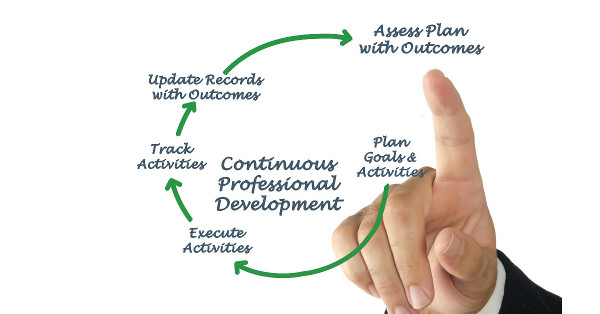Do you want to move your engineering career forward? This could involve getting a more senior position, changing the industry you work in, or progressing in your current role to put you in a better position for the future. One of best ways to achieve these objectives is through continuing professional development.
This doesn’t just apply to engineering, of course, as continuing professional development is important in a range of different careers. Changing technologies, industries, and methods of project delivery, however, mean continuous professional development has an enhanced level of importance in engineering.
What is Continuous Professional Development?
Continuous professional development (which is sometimes referred to as CPD) involves gaining new knowledge, skills, and experience. It can be formal or informal and it normally has a clear direction of travel, i.e. developing a new skill to help you achieve a specific goal.
Training is part of continuing professional development, but it is not just about training. Instead, continuing professional development is about developing wider competencies and advanced understanding in areas related to your engineering career and the path you foresee your career taking in the future.
What Does Continuing Professional Development Look Like?
Continuing professional development can involve enhancing your technical skills or developing and improving leadership and management skills. It can also involve developing and improving soft skills including communication, time management, problem-solving, teamwork, presentation, and customer service skills. These skills are highly valued in modern and forward-thinking engineering companies.
The practical process of continuing professional development can take many forms:
- Formal training where you achieve a qualification
- Learning from colleagues on the job
- Working on a new type of project
- Taking on more responsibilities in your current role
- Learning informally by, for example, reading or completing online tutorials
- And more
Your employer may have an involvement in your continuing professional development. In fact, good employers will play a proactive role. However, the plan must be focused on you. You need to decide what direction you want your career to take so you can set goals, identify skills gaps, and put a plan in place to bridge those gaps.
Advantages of Continuing Professional Development
- Improves your employability.
- Keeps you up-to-date in your chosen field or industry. This is particularly important in industries going through significant change. For example, SL Controls works with many leading manufacturers in highly regulated industries like pharmaceutical and medical device manufacturing. New serialisation rules, as well as emerging Industry 4.0 technologies, mean our engineers operate at the cutting edge of our industry. It is exciting and hugely rewarding, but it also highlights the importance of continuing professional development.
- Maintains freshness and enthusiasm for your job and career. Continuing professional development can also re-energise your career if you have become stagnated.
What We Do at SL Controls
Continuing professional development is important in all parts of our business at SL Controls. As a result, we have a Pathways Programme in place to help our engineers develop new skills, work more autonomously, and receive enhanced compensation.
Crucially, the Pathways Programme is not linear with all our engineers following the same route. Our engineers have options to progress technically into designer/architect/consultant roles and/or to develop people or project management skills by progressing into team lead/project lead roles.
So, where do you go from here? You may need guidance or advice to help you reach a conclusion, but it’s ultimately up to you to decide on the answer. What is for certain, however, is that opportunities exist, so get started today.






Comments are closed.